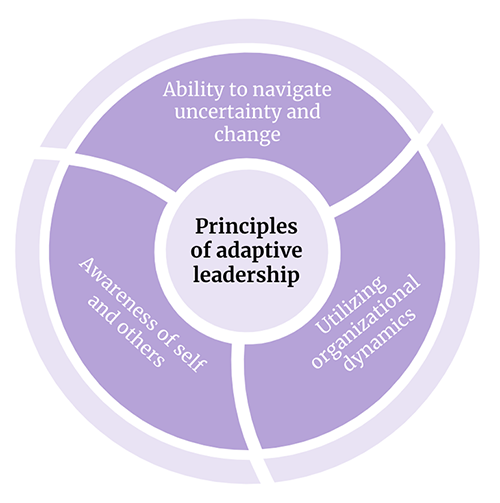
Adaptive Leadership Techniques: Navigating Change Effectively
In today’s dynamic and ever-evolving business landscape, leaders are faced with the challenge of navigating through constant change. Adaptive leadership has emerged as a crucial skill set for those who seek to guide their teams through uncertain terrain, fostering resilience and innovation. This article explores various adaptive leadership techniques that empower leaders to effectively lead through change.
Understanding Adaptive Leadership
Adaptive leadership is a proactive approach that focuses on responding to change, rather than merely reacting to it. Leaders who embrace this style prioritize flexibility and continuous learning. They understand that change is inevitable and view it as an opportunity for growth and development.
Cultivating a Growth Mindset
A key component of adaptive leadership is fostering a growth mindset within the team. Leaders encourage their members to view challenges as opportunities to learn and develop new skills. By promoting a culture of continuous improvement, teams become more resilient and better equipped to face the uncertainties of the business landscape.
Effective Communication in Times of Change
Communication plays a pivotal role in adaptive leadership. Leaders must communicate transparently and consistently to keep their teams informed and engaged. Sharing the vision for change, addressing concerns, and providing regular updates create a sense of stability amid uncertainty. Effective communication fosters trust and strengthens the leader-follower relationship.
Building a Culture of Innovation
Adaptive leaders understand the importance of innovation in navigating change. They create an environment that encourages experimentation and values creative problem-solving. By fostering a culture of innovation, leaders empower their teams to adapt quickly to new challenges and identify opportunities for growth.
Empowering and Trusting Your Team
In times of change, leaders need to trust their teams and empower them to make decisions. Adaptive leadership involves delegating responsibilities and providing the autonomy for team members to navigate challenges independently. This not only fosters a sense of ownership but also allows for more agile responses to rapidly changing situations.
The Role of Emotional Intelligence
Emotional intelligence is a crucial aspect of adaptive leadership. Leaders who possess high emotional intelligence can understand and manage their own emotions while empathizing with the feelings of others. This skill set helps in creating a supportive and resilient team that can navigate change with a positive mindset.
Adaptive Leadership in Action
To illustrate the practical application of adaptive leadership, let’s consider a real-world example. Imagine a company facing a significant industry shift due to technological advancements. The adaptive leader would assess the situation, communicate openly with the team about the changes, and encourage a mindset of continuous learning.
To explore adaptive leadership further, consider the insightful resources available at Adaptive Leadership Techniques. This platform offers valuable insights, tools, and case studies to help leaders enhance their adaptive leadership skills and navigate change effectively.
Conclusion
In conclusion, adaptive leadership is essential for leaders aiming to guide their teams through the complexities of change. By cultivating a growth mindset, fostering effective communication, promoting innovation, empowering the team, and leveraging emotional intelligence, leaders can navigate uncertainty with confidence. The ability to adapt not only ensures the survival of the organization but also paves the way for sustained success in an ever-changing business landscape.






